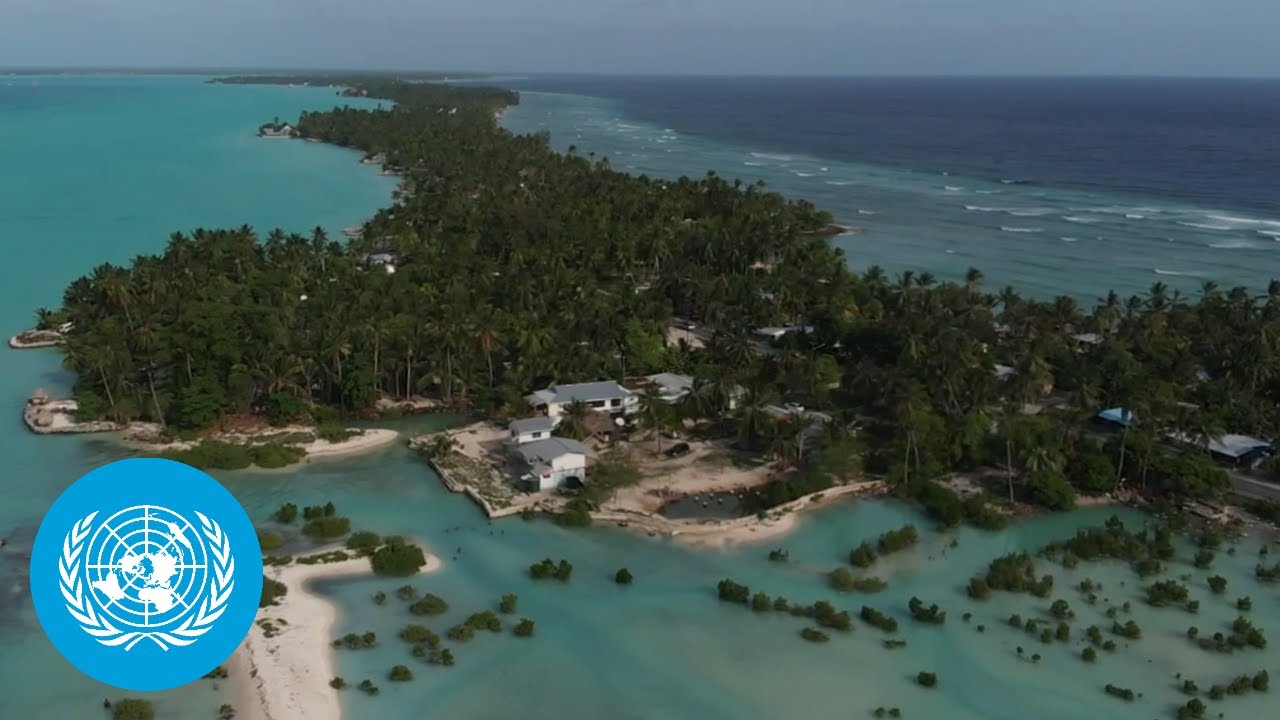Water management project to mitigate climate change effects
Summary
TLDRKenya, along with Egypt, Sudan, and Ethiopia, is implementing the climate-smart water management project 'What Dev' to address critical agricultural challenges caused by water scarcity and climate change. The project focuses on improving soil and water management, reducing salinity, and teaching farmers sustainable practices. Targeting irrigation schemes in the Tana and Hola areas, the initiative aims to boost agricultural productivity while tackling flooding, invasive species, and poor water usage. Funded by the European Union, this five-year project seeks to ensure food security and enhance agricultural resilience in the region.
Takeaways
- 😀 Kenya is part of a regional initiative, alongside Egypt, Sudan, and Ethiopia, focused on climate-smart water management and sustainable agricultural development.
- 🌍 The project addresses the challenges posed by limited water availability and adverse climatic conditions that have affected agricultural production and food security.
- 💧 The primary focus areas of the project are the Bura and Hola irrigation schemes along the Lower Tana River in Kenya.
- 🚰 Major challenges in the project areas include fluctuating water levels in the Tana River, flooding, water scarcity during dry seasons, and poor water utilization practices.
- 🌱 Soil and water management issues are critical, with challenges such as soil erosion, salinity, and the encroachment of invasive species like Prosopis.
- 💡 Experts emphasize the need for better soil management techniques, including better fertilization regimes and practices to improve soil fertility and agricultural productivity.
- 👩🌾 Many farmers in the region are unaware of optimal farming techniques and are not utilizing soil testing to guide fertilization, which limits crop yields.
- 🌾 The project aims to educate farmers about sustainable practices, including the proper use of fertilizers and organic matter like manure, despite the challenges posed by invasive plants.
- 🔬 The project will collect, analyze, and implement new practices and innovations in water resource management, which will be applied at the local project sites.
- 🌍 The project is funded by the European Union for a five-year period and will work closely with local farmers, researchers, and agricultural organizations to address these challenges.
Q & A
What is the goal of the climate-smart water management project in Kenya?
-The project aims to mitigate the effects of climate change on agricultural production by addressing water scarcity and climate-related challenges, enhancing food security, and implementing sustainable development practices in agriculture.
Which countries are involved in the climate-smart water management project?
-The project involves Kenya, Egypt, Sudan, and Ethiopia, with each country working to address water management challenges and build capacity in water and natural resource management.
What are some of the main challenges affecting agricultural production in Kenya?
-Key challenges include limited water availability, fluctuating water levels in the Tana River, erosion, salinity, poor soil management practices, flooding, invasive species, and limited groundwater storage.
What specific regions in Kenya are targeted by the project?
-The project focuses on the Bura and Hola irrigation schemes along the Lower Tana River.
What are the challenges faced in the Lower Tana region of Kenya?
-Challenges include fluctuating water levels in the Tana River, meandering and damage to fields, water scarcity during dry seasons, flooding during wet seasons, invasive species encroaching on land, increasing salinity, and poor management of groundwater.
What role does soil and water management play in improving agricultural productivity in the targeted regions?
-Effective soil and water management is crucial to reversing the effects of erosion, salinity, and poor management practices. Addressing these issues will help improve soil fertility and increase agricultural productivity in irrigation schemes.
What are some of the soil management challenges identified by experts?
-Farmers face challenges such as improper fertilization practices, limited use of manure, and inadequate soil testing. These factors contribute to low soil fertility and reduced agricultural productivity.
How do invasive species like Prosopis affect farming in Kenya?
-Invasive species like Prosopis saplings disrupt farming activities by competing with crops for resources. Farmers avoid using manure because livestock consume it, leading to sprouting of these invasive species, which adds to the cost of weeding.
What suggestions were made to improve soil fertility for farmers in the project areas?
-Experts suggest conducting soil analysis to understand soil nutrient deficiencies and provide targeted recommendations on the use of fertilizers or soil amendments. This will help improve soil fertility and maintain healthy farm soils.
How is the climate-smart water management project funded?
-The project is funded by the European Union for a five-year period, focusing on sustainable water management and agricultural practices.
Outlines

This section is available to paid users only. Please upgrade to access this part.
Upgrade NowMindmap

This section is available to paid users only. Please upgrade to access this part.
Upgrade NowKeywords

This section is available to paid users only. Please upgrade to access this part.
Upgrade NowHighlights

This section is available to paid users only. Please upgrade to access this part.
Upgrade NowTranscripts

This section is available to paid users only. Please upgrade to access this part.
Upgrade NowBrowse More Related Video

Pertanian Presisi dan Smart Irigation BSIP di Penas ke-16 Padang

Kuliah 13 Perubahan iklim dan implikasinya terhadap budidaya pertanian

How the Nile Can Provide Life and Divide Nations | Part II

GESTÃO DOS RECURSOS HÍDRICOS NA AMÉRICA LATINA

How the Nile Can Provide Life and Divide Nations | Part I

Kiribati: Battling for Survival (Rising Sea Levels)
5.0 / 5 (0 votes)